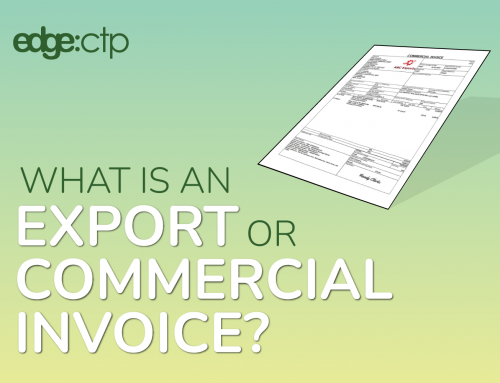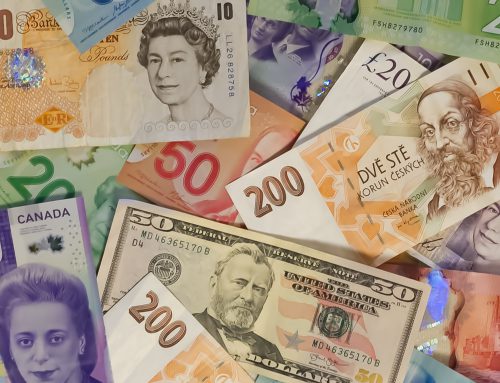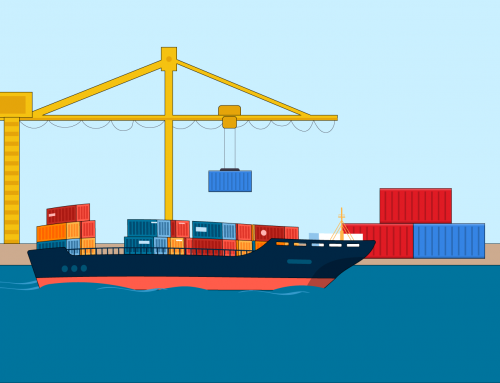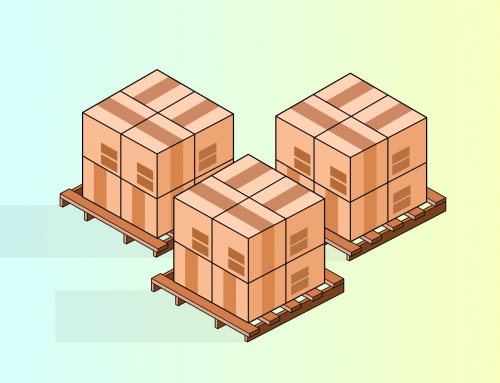Overview: What are Incoterms and their need.
Hi, I’m Geoff Runcie and I’m back with another episode of the International Trade Series. This session will focus on an “Introduction and What are Incoterms”. What they are, how to interpret them correctly, and how to apply them. I’m joined once again by renowned global trade expert Murdo Beaton and Abdul Mann, creator of the cloud-based export solution EdgeCTP Blog.
Today you’ll hear just one in a series of questions presented to Murdo, Alternatively, feel free to drop me an email on Support or visit www.edgectp.com.
I hope you find this useful and more importantly it gives you the insight to go global.
Geoff:
So my first question is, what are Incoterms and why do we need them?
Murdo:
International Commercial Terms, commonly known as Incoterms, were developed by the Chambers of Commerce and reviewed every ten years to keep pace with the changing face of international trade. Incoterms consist of eleven sets of rules that determine a range of performances expected of both the exporter and the buyer of bringing the subject goods to the agreed point of delivery.
Each set is individually named and the name represents the principal performance expected of the exporter, as represented by that set of required performances. It is for the exporter and the buyer to select the set of applicable performances that they deem most appropriate to their intended transaction. Both parties are at liberty to select an agreed place for delivery. The inclusions of those what are Incoterm rules in a supply contract are not mandatory but their exclusion should be evidenced by the adoption of a set of similar rules developed by and agreed by both parties to the transaction.
Whichever one of the eleven sets is selected, the set has an element of flexibility, and any minor individual clause of the set that both parties consider unnecessary can be excluded by reference to the rule number. Some clauses in the set are of such importance to the proper discharge of the supply contract that their exclusion would be ill-advised. We need to consider the use of Incoterms to safeguard both the interest of the exporter and the buyer, as far as what is required of both parties as they bring the product of transaction to the place of delivery.
(Scroll down to continue….)
Abdul:
So Murdo, if we could put this in slightly different terms, if we wanted to understand Incoterms and how they would be applied, I know we’re going to come to those questions shortly. If I was a seller and I’d sold some goods to a location around the world and spoken to the buyer that wants to buy my widget, I’m now entering into a contract in some ways with them, a trade transaction. Do I need to be confined with how I do that particular trade with the Incoterms? Are we going to use Incoterms purely for the delivery of goods from the seller to the buyer, and does it have a bearing on the way I do the trade with them?
Murdo:
Yes, it’s important to understand that Incoterms are not intended to represent the contract of supply between the exporter and the buyer. That contract of supply is a totally separate issue and is a document that will be developed between the exporter and the buyer. Incoterms are an instrument that will allow both parties to facilitate certain areas of their contract. The area in question as far as Incoterms are concerned, are disciplines that are going to be brought or bared by the exporter in bringing the goods to the point agreed for delivery and the disciplines to which the buyer will have exposure in assisting in bring these goods to the place of delivery, and indeed in taking delivery of them.
Abdul:
So what we’re talking about here is like a Mexican standoff. You give me the money, I’ll give you the goods and we’ll do that particular exchange at a particular point, and neither wants to flinch because one is worried about whether they’ll get the money and the other is worried about whether they’ll get the goods. So we have Incoterms to try to build trust between two parties, is that what you’re saying?
Murdo:
No, Incoterms don’t have much to do with the payment of the goods.
Abdul:
Oh, OK.
Murdo:
They have more to do with the condition of the goods when they are brought to the place of delivery. In any contract, the supplier will always be bound by requests from the buyer in terms of what the buyer would like the supplier to do in bringing the goods to this delivery point. Likewise, the supplier might want certain things of the buyer before they bring them to this delivery point. Incoterms are there to help both parties understand what is possible.
Now it may be that when both parties consider whichever Incoterm they are going to use, that it doesn’t actually meet what they themselves would like to have in their contract governing these issues relating to delivery. So yes, these Incoterms are not mandatory, they can develop their own. But, if they do so they must make sure that both of them agree to what each of these new terms that they’ve developed actually means.
Abdul:
OK, so it’s the terms on which you agree to deliver the goods, the quality of the goods and the switching of responsibility of who takes the goods at which point is what an Incoterm is.

Murdo:
Indeed.
Abdul:
And then what you’re saying is that we can override these if we wanted to, tailor them, customize them to our own needs, but with danger bells ringing.
Murdo:
Yes, but if we customize them beyond a certain point then they cease to be Incoterms. Then they are what one would call privately developed terms that have been adopted into the contract.
Abdul:
And the advice would be to stick with the eleven pre-specified Incoterms?
Murdo:
There is a choice from the eleven as to which one you wish to use, and that depends on a whole range of other issues. As far as Incoterms themselves are concerned, they determine certain expectations of the supplier when bringing these goods to the delivery point. They also determine when in actual fact the buyer adopts the physical risk in the goods at the delivery point. From that position at the delivery point, the buyer is now responsible for the well being of the goods. Also, it must be understood that Incoterms have little to do with the transfer of property, so ownership, unconditional ownership in the goods is not determined by Incoterms. The property will pass at a stage determined by both parties privately.
Abdul:
So the point of ownership is not a key element.
Murdo:
The point of unconditional ownership is not a key element. However, if the buyer is going to adopt risk of the goods at a certain point before they arrive at the buyer’s premises, it’s only right to agree that the buyer should have at least some right in the goods and on that basis Incoterms make it possible for the buyer to have conditional ownership in the goods from the time the buyer takes of the risk for them.
Abdul:
So the risk of moving the goods from one place to the next, that’s the point at What are Incoterms defining who then, is now taking on the risk.
Murdo:
Yes, who’s taking on the risk and that party, unless there are reasons that it shouldn’t be the case, that party will be able to adopt conditional ownership. So you could almost say, a form that delivery point to the buyer’s premises, both the exporter and the buyer have joint ownership in the actual goods. But the transfer of property will take place when both parties agree, and normally the transfer of property has some association with the payment of money. But again I would emphasize that whilst it might be the common understanding that the payment of money determines the transfer of property, this is not necessarily so.
Geoff:
I hope you enjoyed this audio. If you’d like more information on international trade, go to www.edgectp.com.





